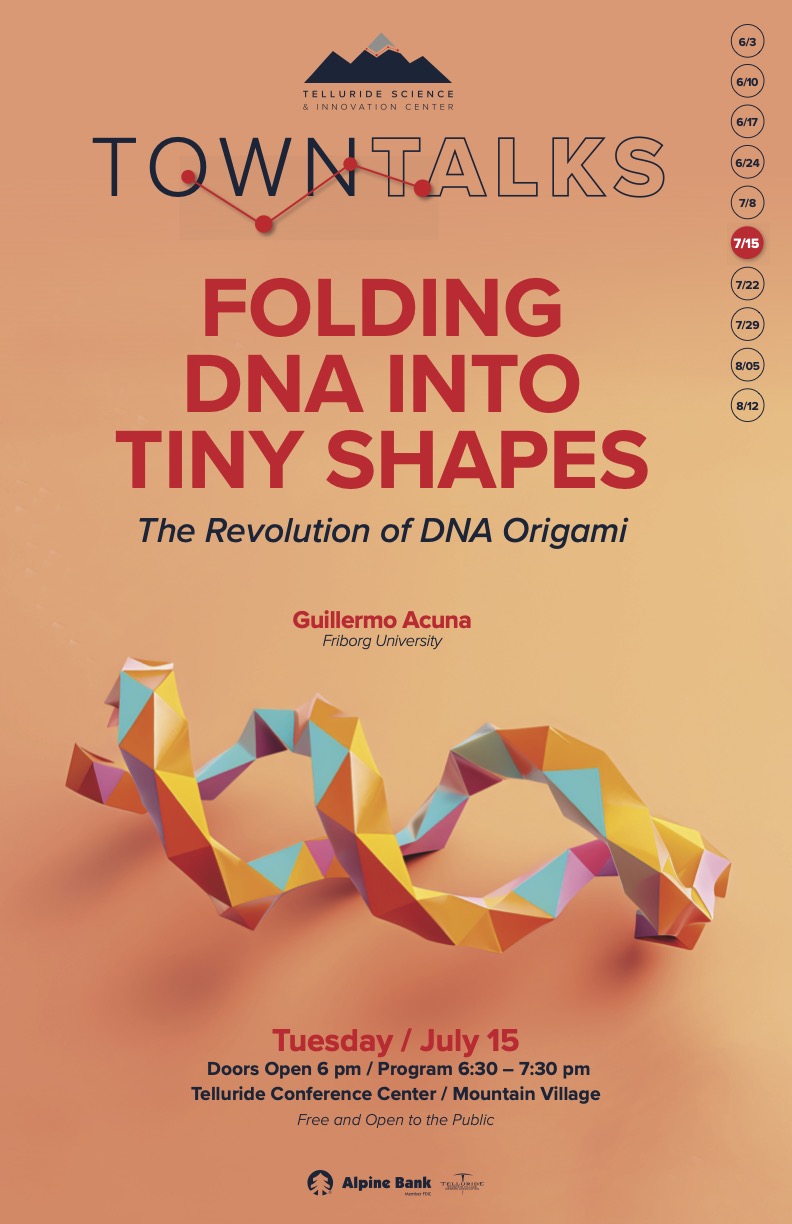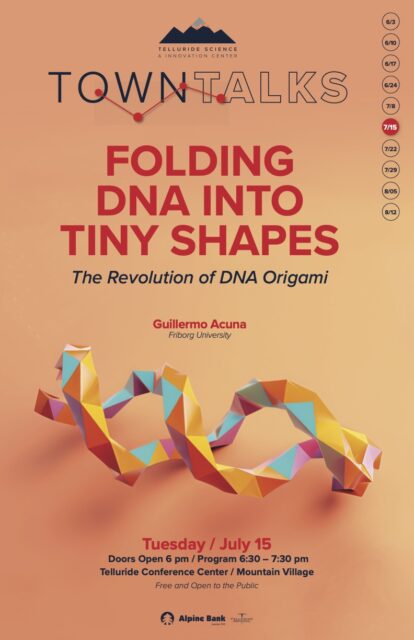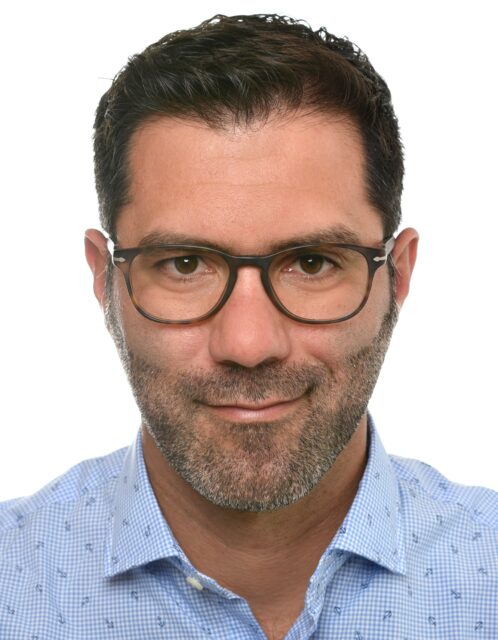
09 Jul Telluride Science Town Talks: “Folding DNA Into Tiny Shapes,” 7/15!
This coming week the 2025 Telluride Science Town Talks series continues with “Folding DNA Into Tiny Shapes: The Revolution of DNA Origami.” The event features Dr. Guillermo Acuna and takes place Tuesday, July 15. Doors 6 p.m.; talk, 6:30 p.m..
Town Talks are FREE and open to the public.
Visit telluridescience.org to learn more about Telluride Science and the capital campaign to transform the historic Telluride Depot into the Telluride Science & Innovation Center. The venue is the permanent home for Telluride Science and a global hub of inspired knowledge exchange and development where great minds get to solve great challenges.
The 2025 Telluride Science Town Talks series is presented by Alpine Bank with additional support from the Telluride Mountain Village Owner’s Association.
Go here for more about Telluride Science.
Go here for more on Town Talks.

Cranes, frogs, boats, fish, butterflies, even tables, the possibilities seem endless. Origami artists have been creasing and folding paper into intricate shapes using techniques that have existed for hundreds of years.
DNA is slightly more complicated than a simple piece of paper – but the process of creating origami using DNA is much the same.
On July 15, Dr. Guillermo Acuna is speaking at Telluride Science’s upcoming Town Talk: “Folding DNA into Tiny Shapes: The Revolution of DNA Origami.”
Using carefully designed staple strands, Acuna and his team fold and bind DNA into tiny, predetermined shapes that can then be used as building blocks to construct materials only nanometers in size. One example is an optical antenna that can focus and manipulate light on an incredibly small scale.
But the applications don’t end there.
DNA origami nano-structures can deliver drugs to specific cells; sense cancer within the body; even trap and isolate viral molecules, helping to protect us from diseases such as COVID-19.
Bottom line: DNA origami has the same limitless potential as the blank sheets of paper artists have used for generations to fashion into representational shapes – but none with the near-atomic precision and life-saving potential of its decorative/ceremonial antecedents.
Dr. Acuna, more:

Dr. Acuna, courtesy Telluride Science.
Dr. Guillermo Pedro Acuna is a full professor at the Physics Department of the University of Fribourg, where he leads the Photonic Nanosystems group.
Acuna earned his physics diploma from the Universidad de Buenos Aires in 2005. He completed his PhD at LMU München in 2010.
Acuna’s main research interests include nanophotonics, plasmonics, DNA nanotechnology, nanoscopy, single molecule techniques, and sensing.


Sorry, the comment form is closed at this time.